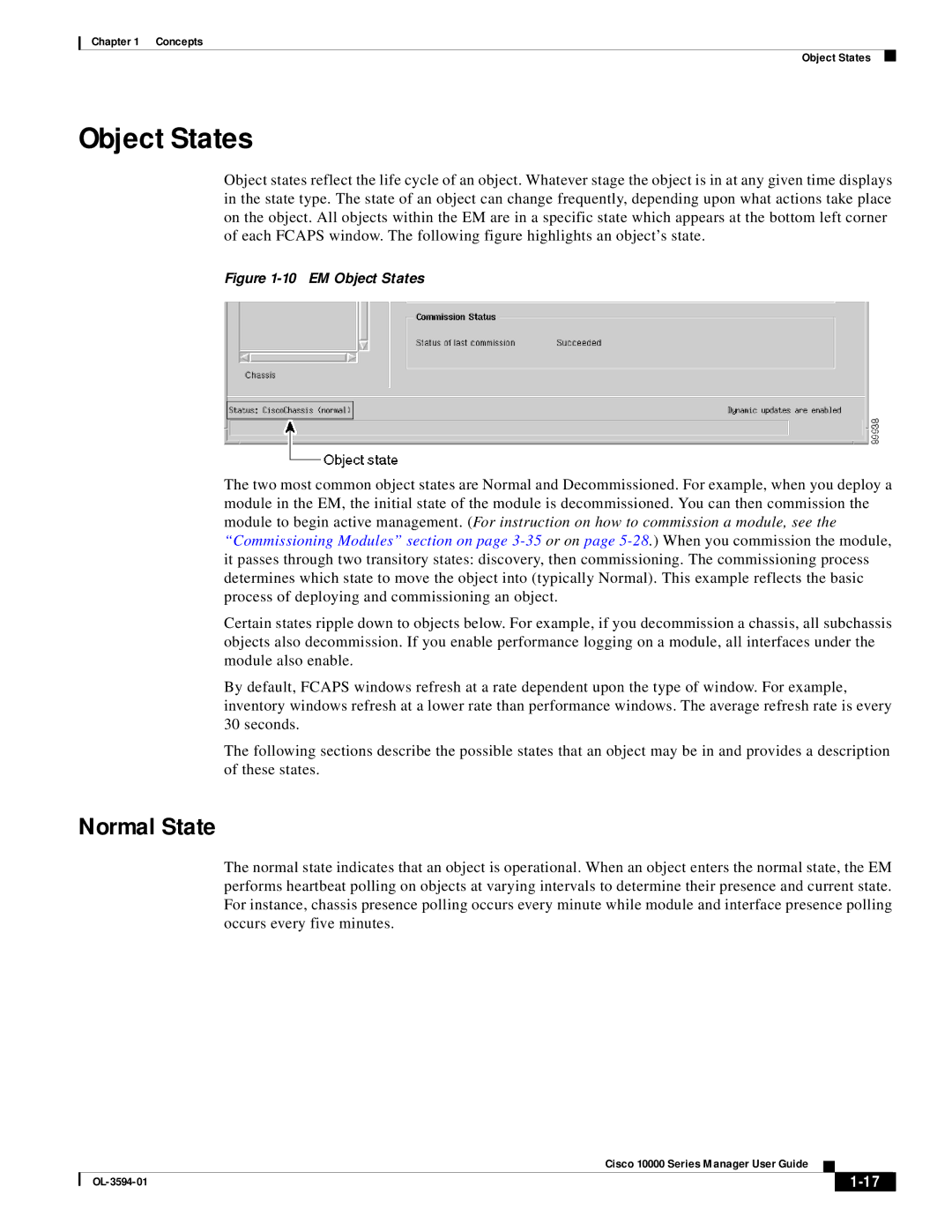
Chapter 1 Concepts
Object States
Object States
Object states reflect the life cycle of an object. Whatever stage the object is in at any given time displays in the state type. The state of an object can change frequently, depending upon what actions take place on the object. All objects within the EM are in a specific state which appears at the bottom left corner of each FCAPS window. The following figure highlights an object’s state.
Figure 1-10 EM Object States
The two most common object states are Normal and Decommissioned. For example, when you deploy a module in the EM, the initial state of the module is decommissioned. You can then commission the module to begin active management. (For instruction on how to commission a module, see the “Commissioning Modules” section on page
Certain states ripple down to objects below. For example, if you decommission a chassis, all subchassis objects also decommission. If you enable performance logging on a module, all interfaces under the module also enable.
By default, FCAPS windows refresh at a rate dependent upon the type of window. For example, inventory windows refresh at a lower rate than performance windows. The average refresh rate is every 30 seconds.
The following sections describe the possible states that an object may be in and provides a description of these states.
Normal State
The normal state indicates that an object is operational. When an object enters the normal state, the EM performs heartbeat polling on objects at varying intervals to determine their presence and current state. For instance, chassis presence polling occurs every minute while module and interface presence polling occurs every five minutes.
Cisco 10000 Series Manager User Guide
|
| ||
|
|
